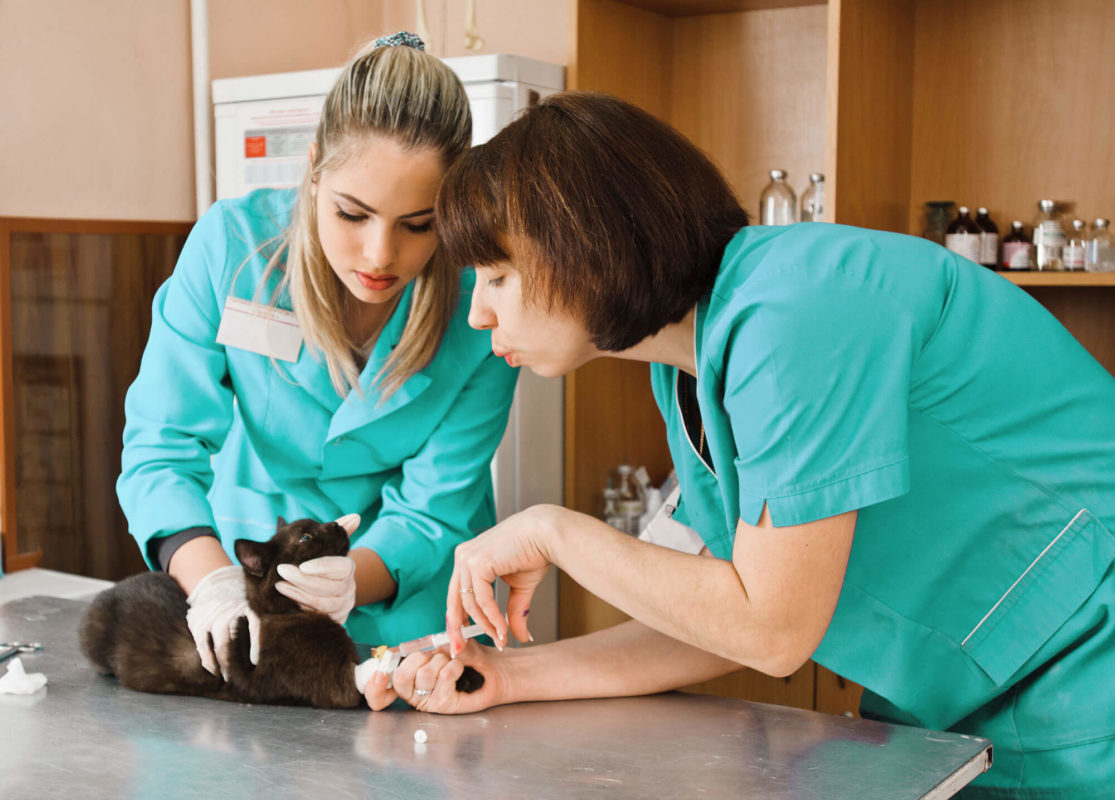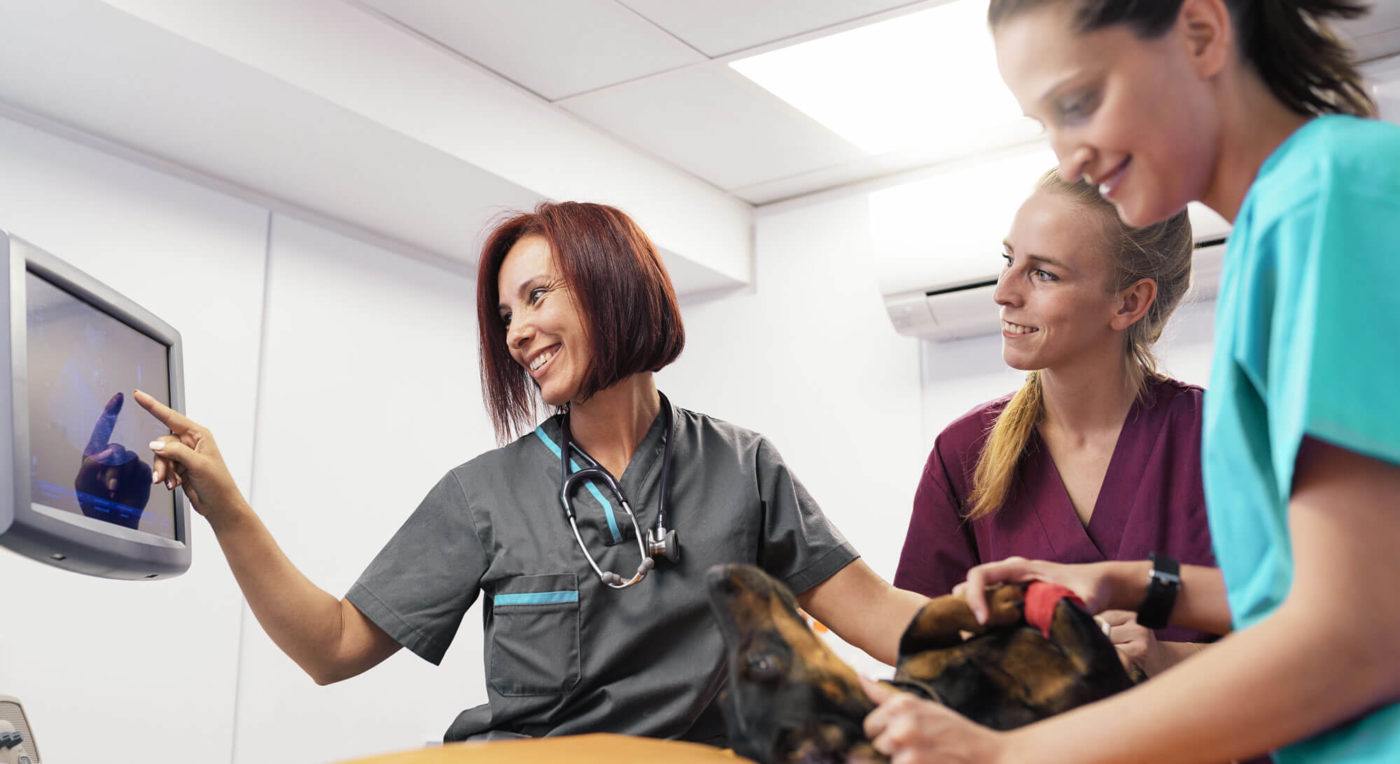clinical mentors
Clinical Mentors are a vital component of the way we deliver our outstanding veterinary nursing courses and are an integral part of our quality. Learn more about becoming a Clinical Mentor.
Clinical Mentors are a vital component of the way we deliver our outstanding veterinary nursing courses and are an integral part of our quality. Learn more about becoming a Clinical Mentor.
Clinical Mentors are veterinarians or qualified veterinary nurses who have volunteered their time to mentor ACVN Student Veterinary Nurses.
To ensure we produce top quality graduates, it’s important that we ensure that Clinical Mentors for our students have the right qualifications, skills and experience to provide clinical experience and learning for our students.


― Benjamin Franklin

Each student will require at least one qualified Veterinary Nurse or Veterinarian to act as his or her Clinical Mentor. This role provides a contact point for our students whilst in the clinic and is part of our quality control process.
The Clinical Mentor is there to help the student develop the skills to complete tasks as set out in the course work. This often involves demonstrating and instructing, as well as observing and supplying feedback on how the student is going.
Mentors also verify workplace skills. Most of our practical assessment is done via video, so as a Clinical Mentor, you do not need to be involved in most of this aspect. We do have Key Skills, which are sheets where the student records details of tasks they have undertaken. Clinical Mentors sign these off when they are happy that the student can, and does, perform the task proficiently, and that it is an accurate record of the tasks undertaken by the student. Proficient is when they can perform it as you’d expect from an employee. The student will have to arrange further work experience to master the skills necessary.
If a student does not perform a skill proficiently whilst on placement, it’s ok to not sign off the task. You should also not sign off a skill if you did not observe the student undertaking it, or can verify that it did occur.
Students must also write up some case studies from their time in the clinic, and these must accurately reflect the student’s involvement in the case. Mentors are asked to sign a declaration to verify this.
― Phil Collins

Both vets and nurses can be mentors. Veterinarians must be registered with the local Veterinary Surgeon’s Board. Veterinary Nurses must be qualified with at least an ACM40410 Certificate IV in Veterinary Nursing, or equivalent overseas qualification, or bachelor degree in veterinary nursing or technology.
If a qualified veterinary nurse who wishes to mentor a student holds an older qualification, they can still be a mentor. Proof of continual learning via CPD courses, seminars etc. attended will need to be provided. This is because earlier qualifications are not a direct equivalent of the latest training package, and recommendations and treatments are constantly changing. This requirement is also part of our quality control process to ensure that our graduates are the best they can be.


To register as a Clinical Mentor, just complete this simple form.
Once we have processed your registration we’ll email you your access details to this website.
But for the minute, please download the form below.
This covers you to mentor students in Cert II, III or IV.
If you’re looking to mentor a Diploma student, please contact us for the appropriate forms.
It is not a requirement that Clinical Mentors must proof read a student’s work. Anyone can proof read assessments for the student to check spelling, grammar and general structure.
Students do however appreciate a veterinary professional reviewing their work to help ensure they are on track clinically.
Of course, before signing a Clinical Mentor Declaration, you’ll need to at least speed read the case study to verify it is indeed an accurate reflection of the student’s involvement.
We won’t lie – there is work involved, but if you have a passion for teaching, and are open to learning. Then you will get much more out of mentoring that you put into it.
Most mentors will spend several hours a week working with and supervising new skills, but then the student can work under indirect supervision.
We’ve structured our video assessments to not need too much other staff involvement, and our Key Skills are just signatures and dates for Mentors.
Sometimes your workplace roster, or an individual Clinical Mentor’s skill set, may require more than one person to fulfil this role. This is perfectly fine as long as each mentor is registered with us. Students often have 2 or 3 mentors registered, which helps to share the work load.
Of course, other staff may also be involved in training, after all, it’s a team environment, but only approved mentors can sign off Key Skills and Case Study Declarations.
No! It is fine to run role play/scenarios instead of allowing students to interact directly with your clients.
Once you have access to this website, you’ll find guidance on alternatives for many of the tasks.
It’s important to us that we help you protect your clinic’s reputation at all times, ensure privacy laws are not broken and that training can be adaptable to your specific policies and procedures whilst still meeting course objectives.
If at any time during the placement you feel our student is not an appropriate match for your clinic or is disrupting your staff, you’re entitled to cancel the placement.
If this is necessary, please call our office to discuss the issues on 03 9040 3600.
